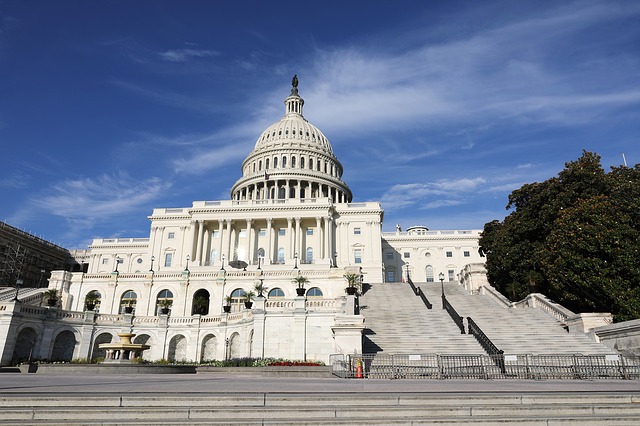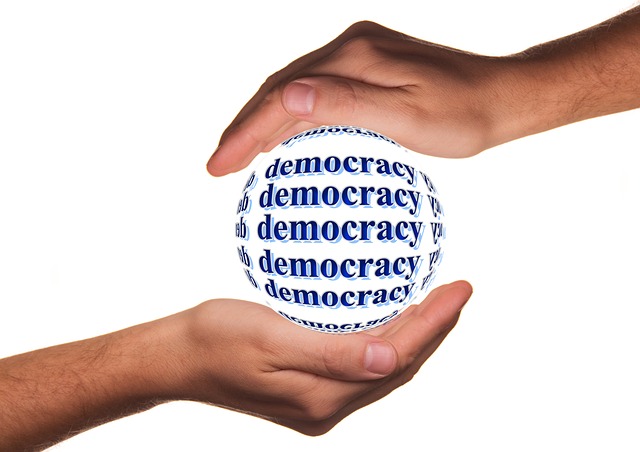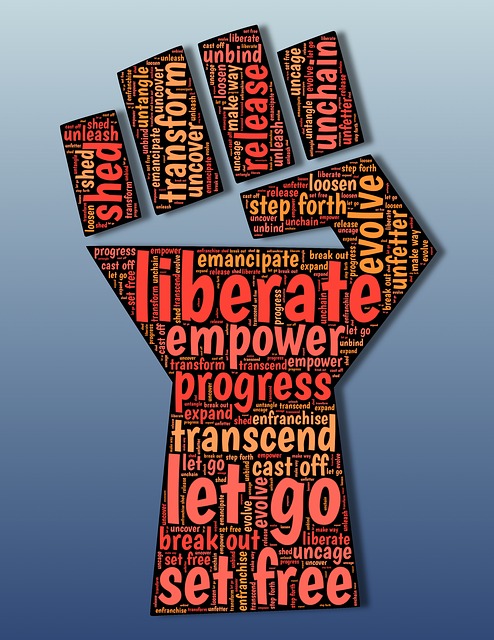112 countries participated in the recently held Summit for Democracy convened by the Biden administration. A first virtual summit of its kind, various governments are expected to make some commitments as part of the summit. Read on for a summary of expectations from Biden’s global leaders’ summit and democracy’s scorecard.
Expectations from the summit
The goal was to address internal weaknesses and counter the global rise of authoritarian rule. The reality is that all democracies have to combat the spread of authoritarianism abroad. At the same time, they have to strengthen democratic practices at home. The summit hoped to emphasize both responsibilities.
Consequently, participants should implement commitments within one year. Thereafter, another in-person summit should hold in December 2022 to assess progress.
Continually, democracies have to work together to defend and promote democratic norms. They have to close domestic legal loopholes used by authoritarians. Similarly, they can use sanctions and conditions on financial assistance to raise the costs of repression. This way, multilateral action on the part of the world’s democracies can enable both aspiring autocrats and authoritarians to see that abuses have consequences.
Current Scorecard for Democracy
As President Joe Biden put it while quoting from the late civil rights leader Rep. John Lewis’s New York Times op-ed, ‘Democracy is not a state. It is an act.’ In recent years, therefore, how has democracy performed in most countries?
In a Freedom House report as cited by Biden, over the last 15 years, democracy has declined while authoritarianism has been on the increase. Furthermore, over two times the number of countries (119) have had declining political rights and civil liberties as compared to those that have recorded improvements (55).
In addition, as compared to 1995 and even last year, a lower percentage (less than 20 percent) of the world’s population is currently living in what is considered a free country.
More concerning as viewed by Biden, there is increasing dissatisfaction of people globally with democratic governments that they feel continue to fail in meeting the needs of the people.
CIVICUS Monitor, in a global rights index recently released its new annual report. In 2021, it graded 197 countries. Of that number, 13 countries have their civic freedoms downgraded from the previous year. The report rated 39 countries as open societies. Interestingly, only Mongolia has an improved civic freedoms index.
Meanwhile, in a Pew Research Center report also released recently, people expressed their preference for democracy. However, their commitment to it is sometimes weak. More so, some people in wealthy countries such as the U.S., favour military rule.
Finally, a different group – the International Institute for Democracy and Electoral Assistance reported an unprecedentedly high number of democratic backsliding countries in the past decade. Perhaps, not unsurprisingly, U.S., India, and Brazil are in the list.

Current Regional issues on democracy
Countries can use the state of governance and the socio-economic wellbeing of citizens as indices to measure democracy. This can help give a broad clue on Biden’s Global Leaders Summit And Democracy’s Scorecard.
Africa
Certainly, Africa is one of the worst-hit continents in terms of the socioeconomic impacts of the coronavirus pandemic. People have limited access to vaccines. furthermore, less than 8 percent are fully vaccinated. Meanwhile, conflict continues in the Sahel and the Horn of Africa.
Several countries including Burkina Faso, Mali, and Niger face challenges on governance and violent extremism. Meanwhile, many remote villages lack public services. One would have thought South Africa being one of Africa’s most-industrialized countries, would fare relatively better. However, the political and economic decline is persistent. More so, forecasts indicate South Africa risks a decline into a lower-middle-income economy by 2028.
Democracy cannot be sustained and neither can it thrive if certain structural enablers are not in place. For instance, the overall well-being of citizens in such terms as rising incomes and good jobs can affect the sustenance of democracy and the tendency to violent insurgencies. Moreover, where the citizenry is prosperous and better informed, both local and national governments can be held more accountable.
Similarly, some multinational companies and many corrupt African elites continue to evade tax. These and other illicit financial flows drain up to $90 billion from Africa each year.
Europe
Meanwhile, the days for the summit coincided with a citizen-centric Conference for the Future of Europe. In Europe, democracy is facing its own challenges. The continent does not only have to concern itself with external crises in countries like Afghanistan, Sudan, and Ethiopia, it has to tackle issues internal to Europe such as in Poland and Hungary.
Furthermore, there can be improved trust and cooperation between Europe and the United States in acknowledging and improving democratic shortcomings. This way, the goal of reviving global democracy and improving European engagement can be achieved.
Japan
Japan continues to make security cooperation with Southeast Asian countries a key objective. This will help them prevent China from overtaking disputed territories. More so, they can maintain their freedom to navigate the East and South China Seas. Incidentally, this is a cause of division among countries in the region.
More specifically, Japan aims to build better relations with Vietnam, Thailand, and Singapore. Surely, such improved relations will help Japan work with non democracies in the region to tackle corruption and improve human rights generally.
In the same vein, they can creatively model approaches in handling political issues of civil rights violations and democratic governance. This will help reduce the limitations posed by the noninterference principle which explains the deeply rooted reluctance to interfere with internal affairs.
Latin America
Various countries in Latin America are declining democratically. Little surprise there, considering that the region has strong economic ties to China. Thus, the focus has been to reduce the domestic drivers of democratic erosion.
This is because the decline in democracy in the region can be traced to domestic factors such as growing inequality and poor quality of public services. In countries such as Brazil, Bolivia, and Columbia, the growing inequality is evident. More so, this increased polarization is seen in recent elections in Chile. Again, rather than frame a geopolitical debate on democracy vs autocracy, the debate is to address the above shortcomings as a necessary first step.
South Asia
India seems to have experienced a gradual decline of democracy under the Hindu nationalist government. Instances that indicate such decline include discriminatory policies affecting the Muslim minority and assaults on civil liberties in the media and civil society. Moreover, there has been a crackdown on civil protests.
Interestingly, there has been a democratic renewal in Maldives. This is probably due to the opposition’s success in the 2018 presidential election. Nepal too has shown improvement as it has abolished its monarchy. Likewise, since the Maoist-led civil war ended in 2006, Nepal has subsequently conducted multiple competitive elections.
I

n the same vein, Sri Lanka has shown improved political and civil rights since 2015. Though, the country holds a poor record on transitional justice after its civil war that lasted some decades.
Bangladesh has experienced a democratic decline since 2009. However, Pakistan records the lowest democracy scores for the region. Again, there is little surprise there as the country is de facto ruled by its authoritarian military.
United States
Clearly, the United States has to demonstrate its own commitment to democracy in recent times. The invasion of the U.S. Congress on January 6, 2021, is just one of the recent symbols that symptomizes the current crisis of U.S. democracy. There has been a sharp decline in U.S. civil liberties and political rights.
Furthermore, nineteen states have passed laws that make it more difficult for citizens to vote. This, in addition to indicated efforts to subvert election results using partisan election administration, goes to show how much the United States still has to do to strengthen democracy at home.
Truly, the United States may have an established democratic system. It has however been hurting in recent years.
A Cold-War Mentality
Earlier on before the summit, Chinese and Russian ambassadors to the U.S. criticized the summit as a whole. They wrote a joint essay in the National Interest policy journal saying the Biden administration is exhibiting a “Cold-War mentality that will stoke up ideological confrontation and a rift in the world.”
Several countries that were not invited to the summit have also indicated their displeasure.
Next Steps…
Granted, Biden’s global leaders’ summit and democracy’s scorecard may already be done and assessed, the action plan must be inclusive for it to be a success. Non-governmental agencies, human rights groups, and indeed, civil society itself should have roles to play. They should be able to assess democracy in action. The governments have to be transparent about their promises. For civil society to do this, governments will need to be transparent on their pledges, more importantly, real commitments must be made to the specific democracy boosting measures expressed by participants of the summit.
You can visit Ovacom Consulting for more political updates.






